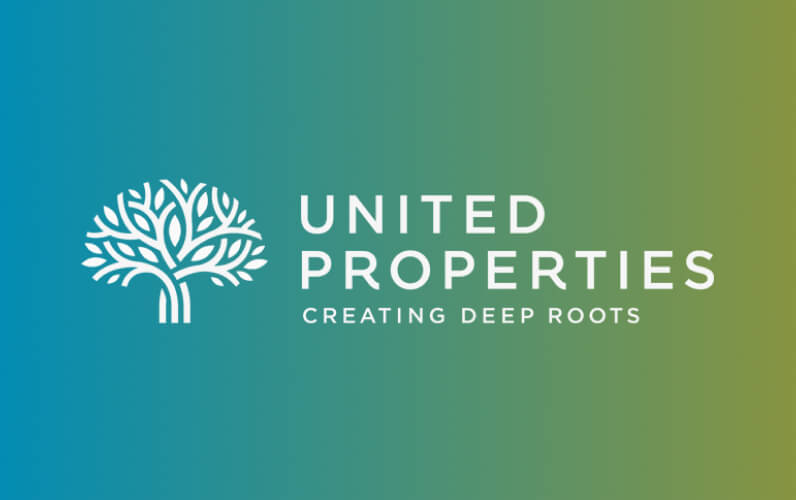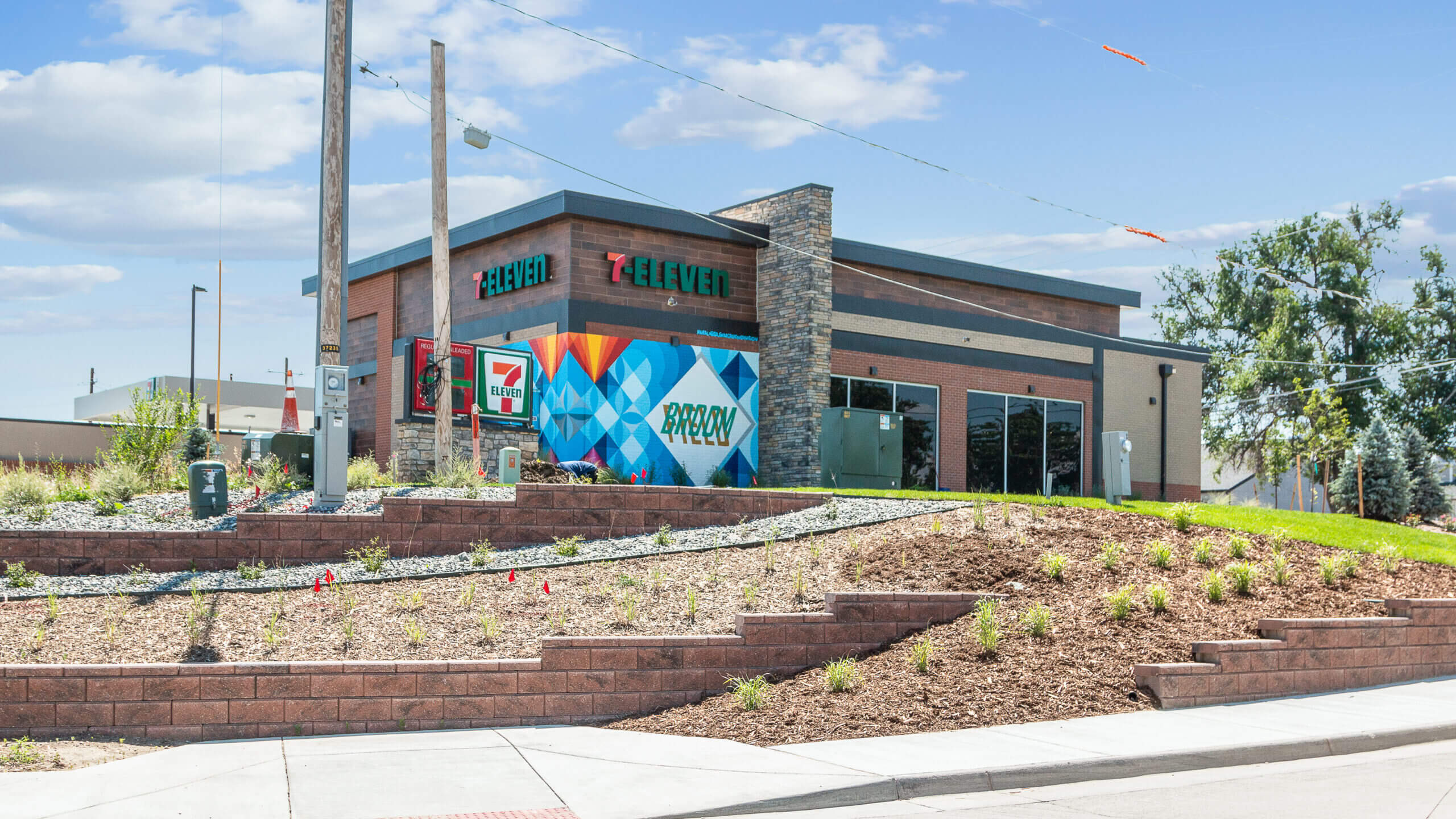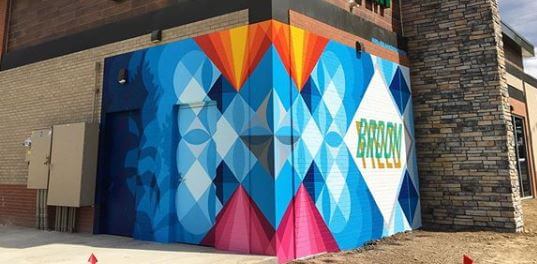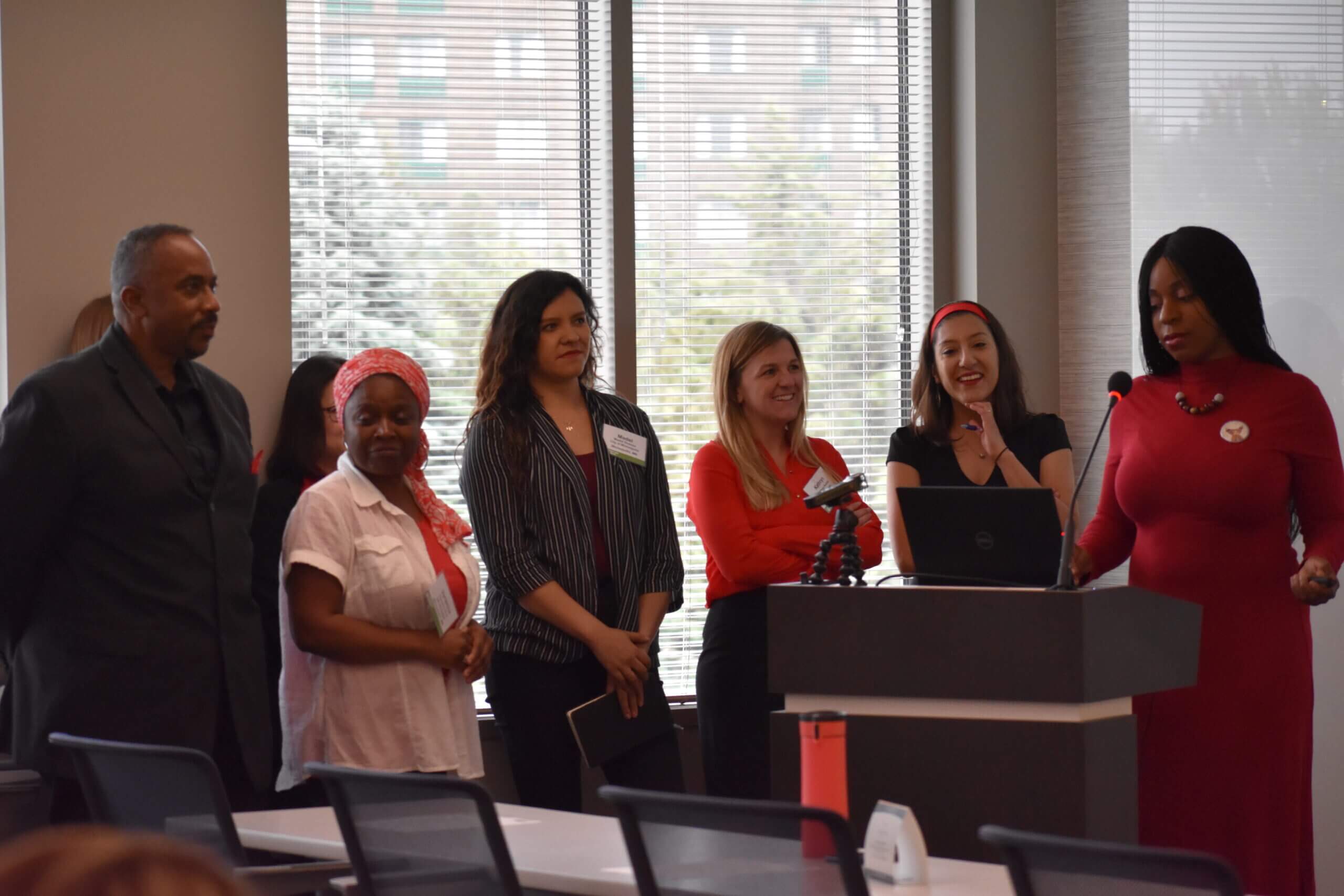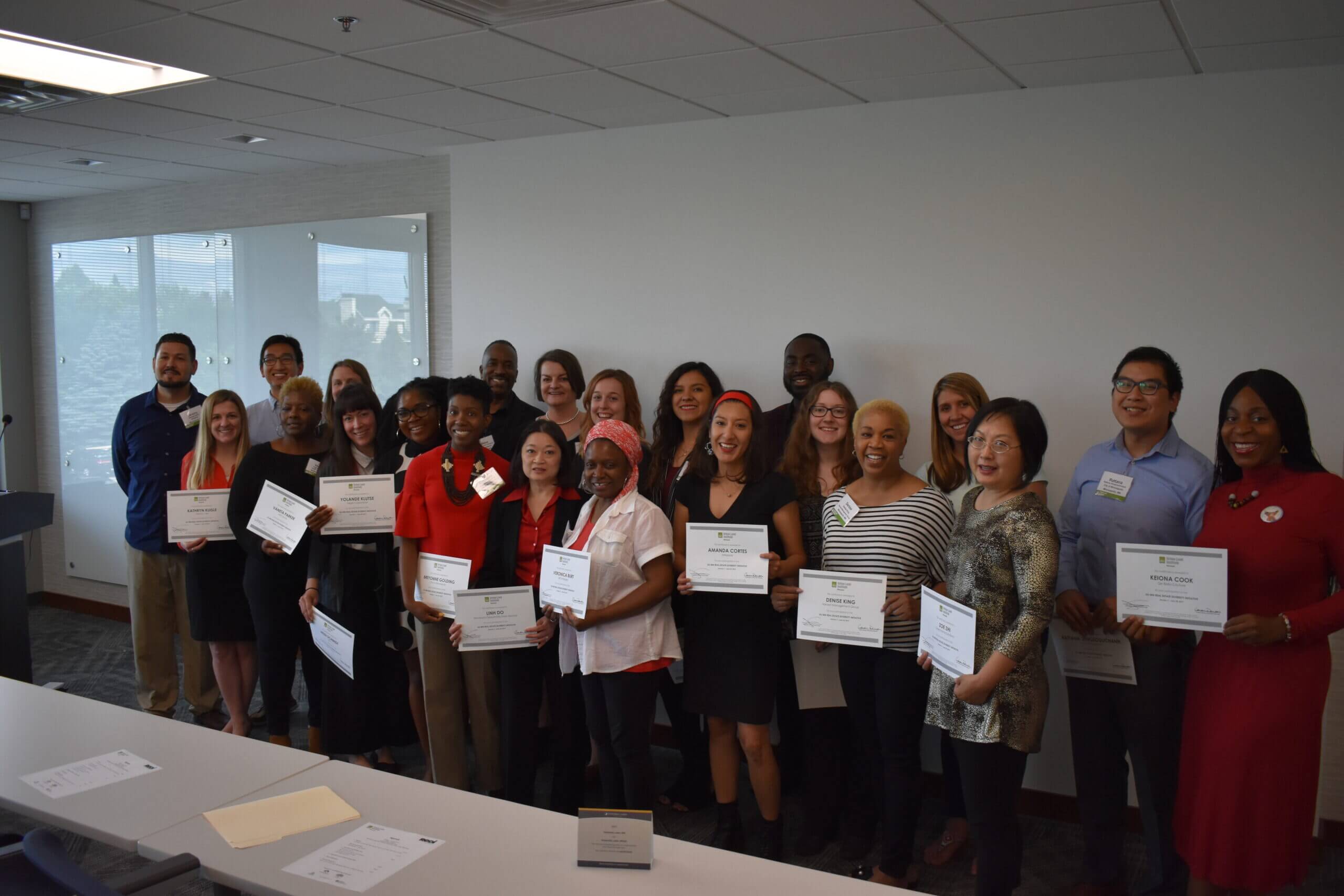AUTHORED BY COLE STERR
We all love public art. We love to look at it, marvel at it, interact with it, learn about it, and take pride in it. The Spoonbridge and Cherry sculpture has become an icon for the city of Minneapolis and instilled local pride within our community, while the Mary Tyler Moore statue in downtown Minneapolis reminds us that our city was once the home of a popular and progressive sitcom.
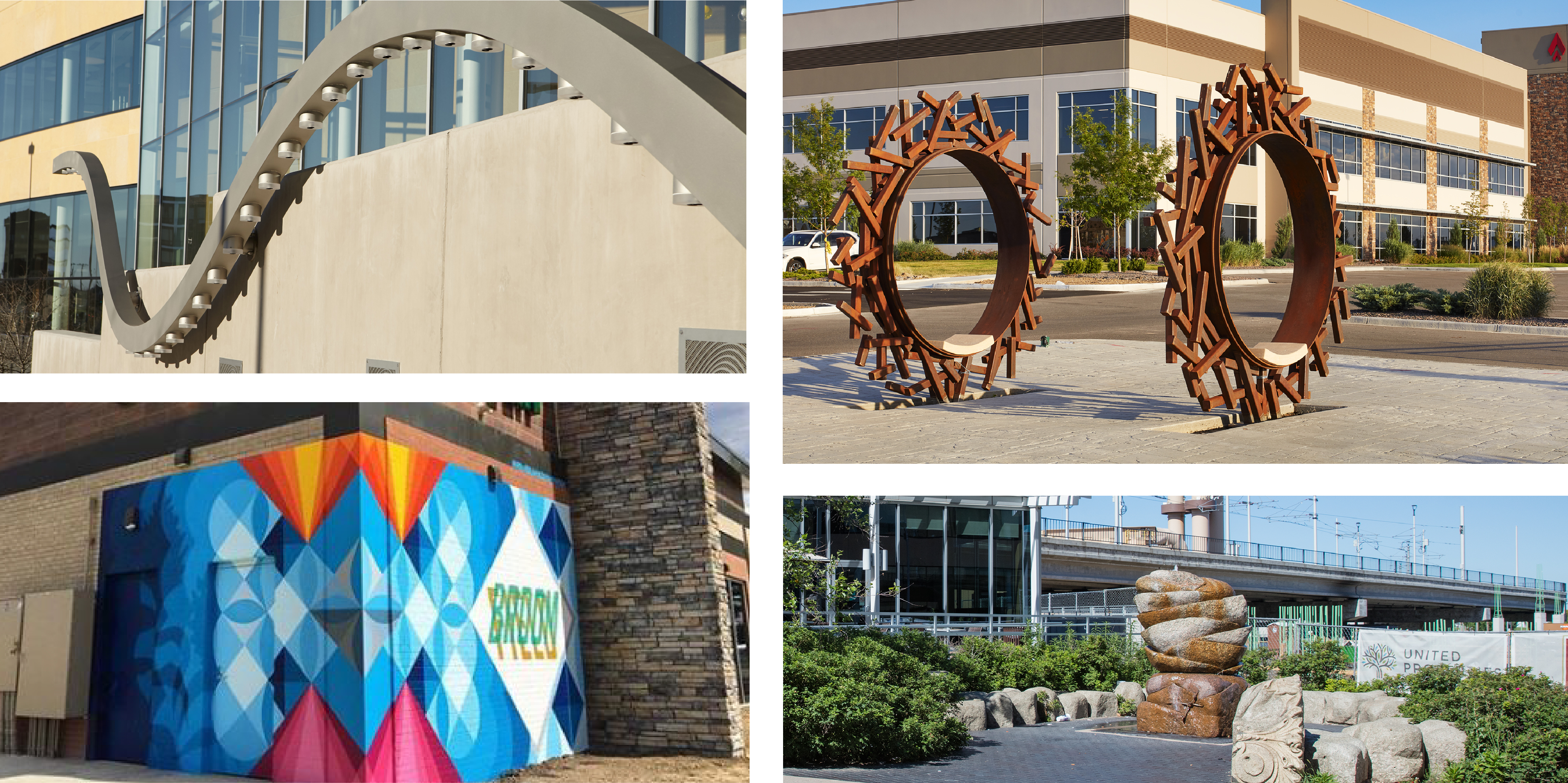
But, what is the purpose of public art and why is it so important to communities? Further, how has United Properties been able to incorporate public art to enrich the communities where we live, work and play?
Public Art Uplifts Public Health
First, what is public art? It’s simple. According to Americans for the Arts, public art is “art in public spaces.” The way art is incorporated into a public space can be a response to the place and community in which it resides and is often site-specific. It can reflect a place’s history, culture, people, and societal norms.
Additionally, there are several health benefits that public art can provide to a community:
- Helps us take a breather. In such a fast-paced world, public art can slow us down and help us appreciate the values in our communities we may not have previously noticed. Colin Ellard, a neuroscientist who studies the relationship between psychology and urban design, researched this and found that city residents walk at an average speed of three miles per hour. However, when comparing walking speeds of walkers in areas where there was public art and areas without, he discovered that those who walked passed the artwork reduced their speed by 50%. Even when it’s unbeknownst to us as citizens, public art affects how we move and view our surroundings.
- Cultivates positive emotions. Contributor to Forbes Raquel Laneri articulates that public art pieces can break up “the monotonous and sometimes oppressive nature of city working life.” Simply put, it can just make you smile. Art installations can be clever, downright funny, interesting, goofy, fun, or be the source of a happy thought on your daily commute, while relaxing in a park, or exploring a new area.
- Instills local pride and social capital. The Fearless Girl statue that was placed on Wall Street in New York City exemplifies this function of public art. Remember Spoonbridge and Cherry and the Mary Tyler Moore statue? Public art installations represent cultural icons that trigger a community’s collective sense of pride – especially when it can be used for a feel-good Instagram moment.
- Represents marginalized communities. Public art can uplift voices of those who may not be at the forefront of the mainstream media or whose history might not be known to the general public. Pieces that have ties to indigenous tribes or communities of color can be a reminder that different communities exist and are present while fostering feel-good moments and open-mindedness in a community.
United Properties’ Public Art in Action
As part of our brand promise to enrich communities, United Properties has incorporated several public art installations into its developments – all of which can provide some sort of benefit to our communities!
Be The Match – Sidewalk Harp
In front of the Be The Match headquarters – developed by United Properties in 2015 – lies a unique structure that at first glance just seems like a fancy light fixture. After walking past the installation, however, one might start to hear noises. That’s no accident. That’s right – this piece has motion sensors to detect when someone walks by or waves their hand under it and subsequently plays different notes to resemble that of a harp. Created by artist Jen Lewin, this public art piece causes people to slow down and interact with their surroundings while having a little fun.
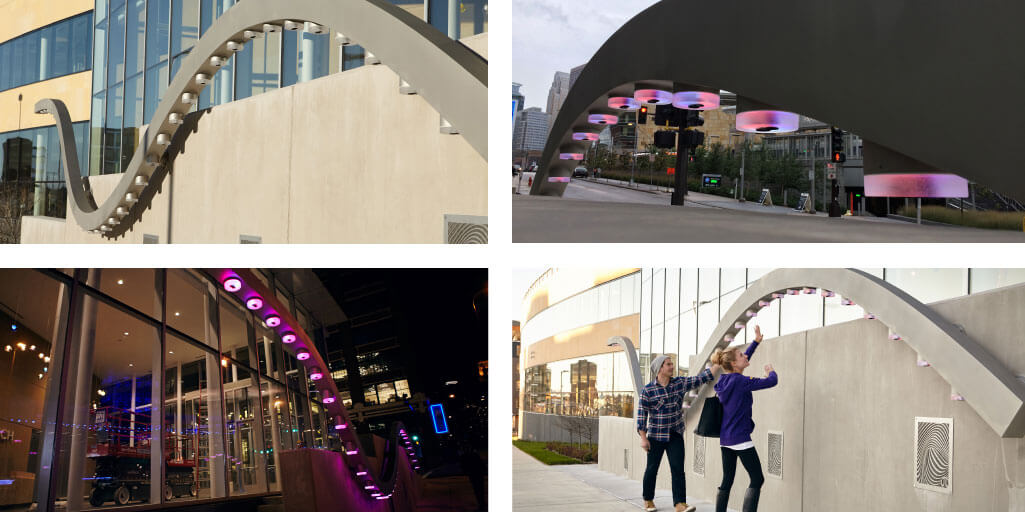
Align Sculpture at Enterprise Business Center
At our prime industrial building in Colorado, we’ve recently implemented a unique sculpture titled Align by artist Joshua Wiener. The piece resembles a root system and appears to be “growing” into the surrounding space, conveying wholeness and unity. Align brings an interesting perspective and gives bystanders and workers something inspiring to look at.
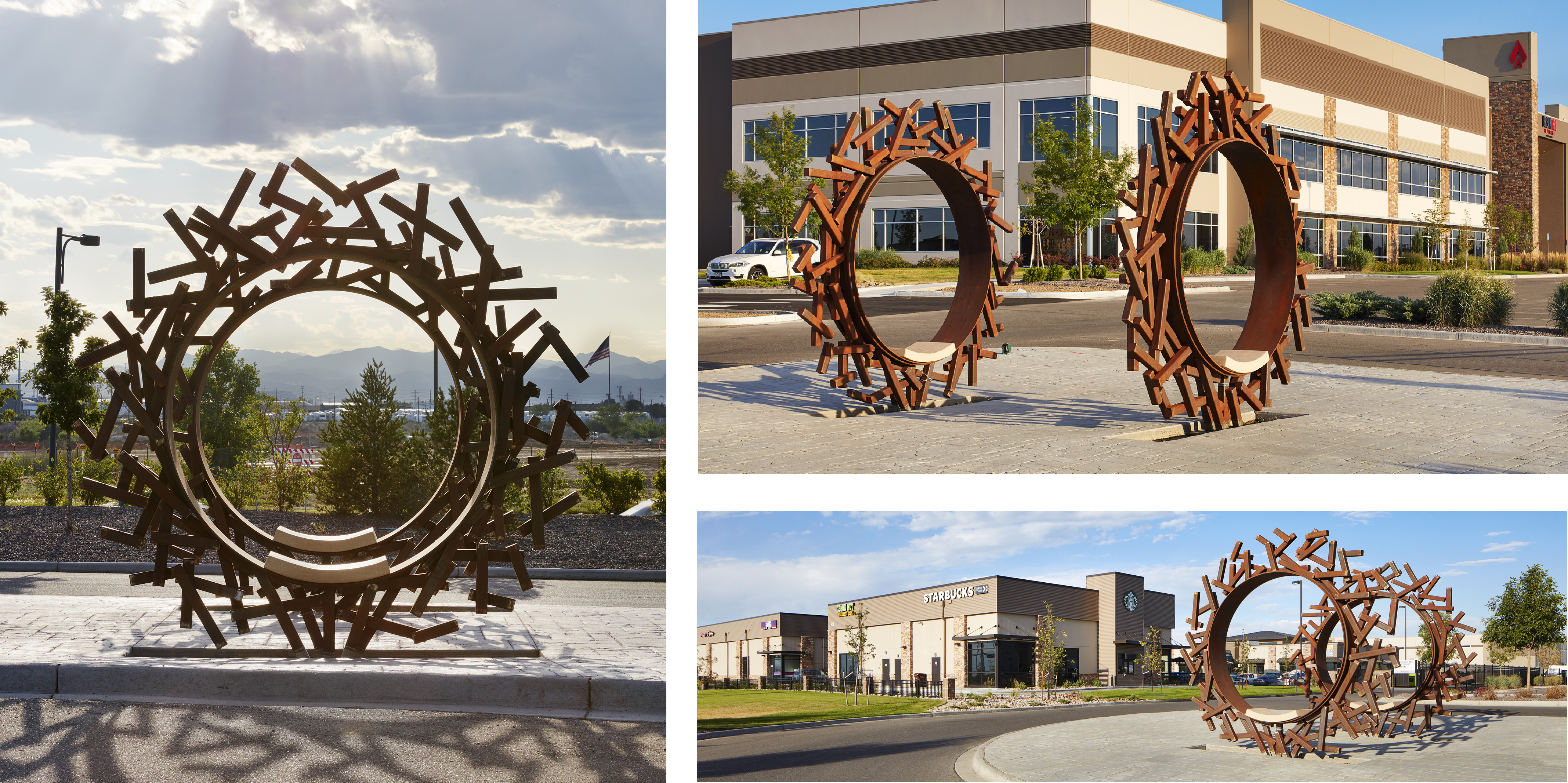
Mural at 7-Eleven in Broomfield, CO
The first-ever mural implemented at a 7-Eleven in Colorado has unique ties to the community of Broomfield. The mural itself reflects the community by highlighting the Colorado sunset palette and the area’s vegetation and landscapes. It brings a fun and vibrant mood to the gas station for shoppers and workers to admire through its bright and eye-catching colors while becoming a hot spot for social media engagement. It was created by members of So-Gnar Creative Division.
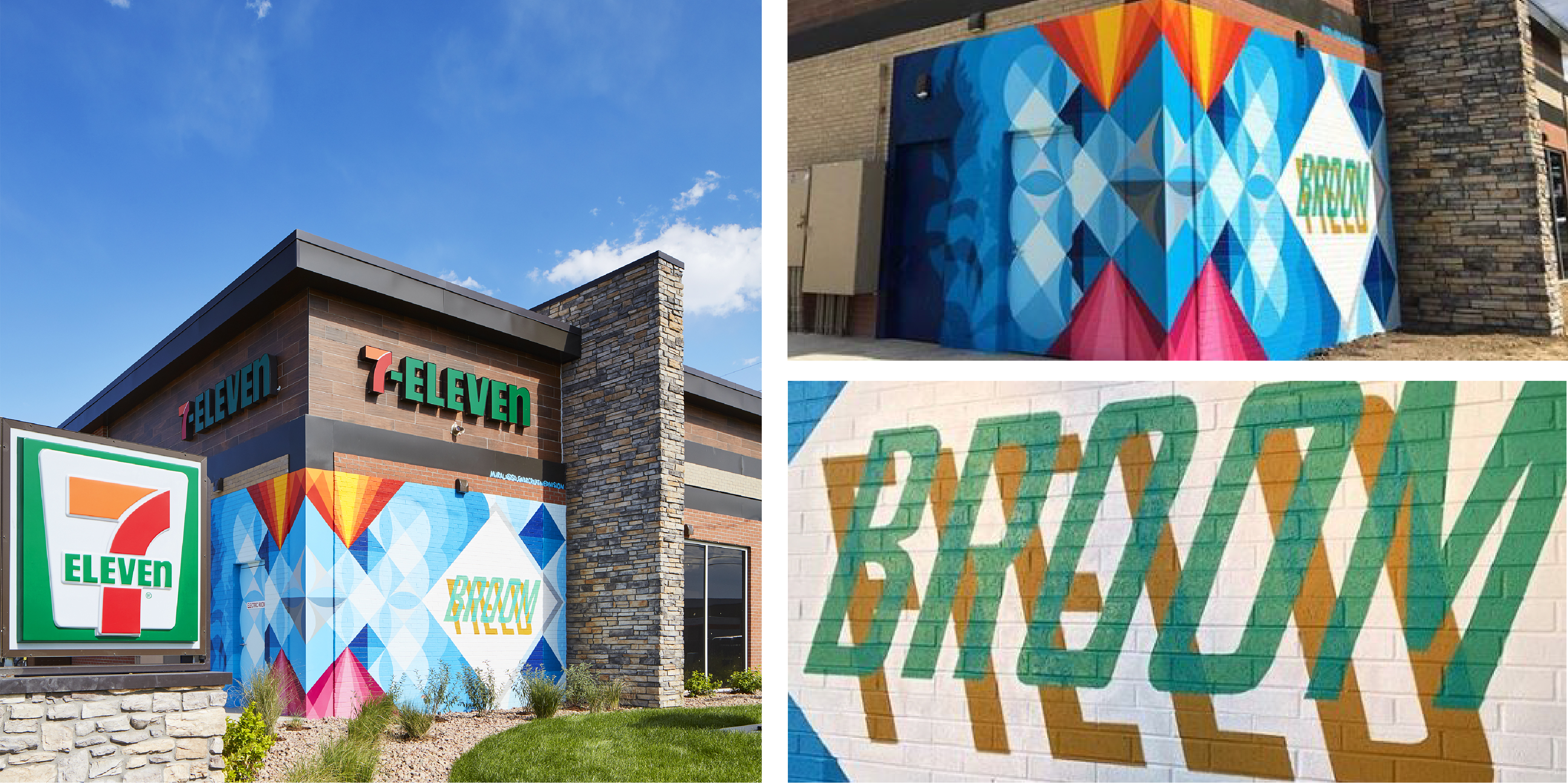
Curve Ball Art Piece near Caribou & Target Field Station
Near one of our Caribou Coffee developments and Target Field Station lies a rock sculpture titled “Curve Ball” by artist Zoran Mojsilov. The piece lies in the center of a gathering space that is encompassed by rock seating. This public art piece cultivates a sense of community within the heart of the North Loop and provides visually appealing scenery while one enjoys a good ‘ole cup of Caribou.
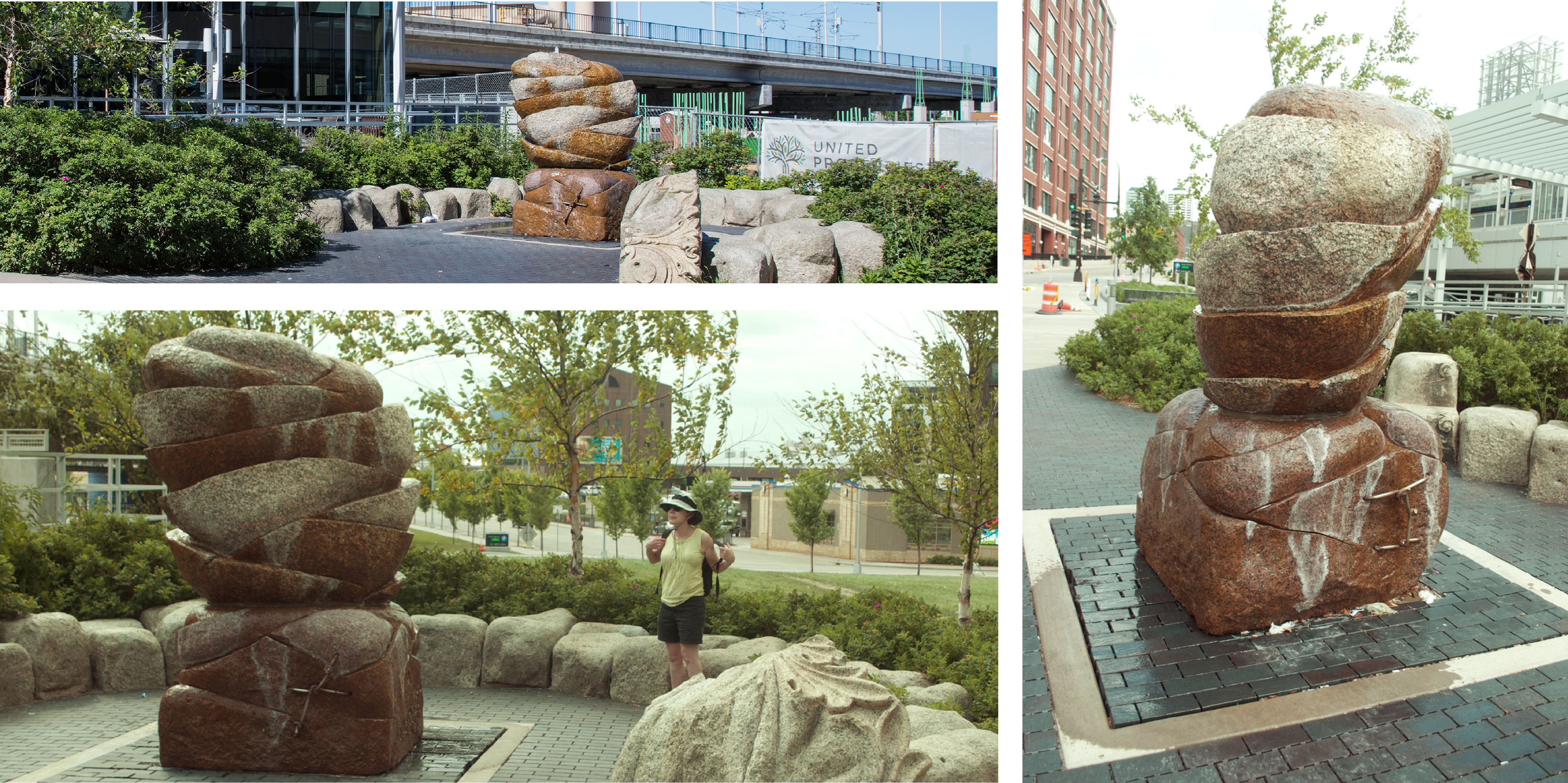
United Properties imagines the possibilities of how public art can transform real estate. Whether a public art piece sparks creativity, ignites curiosity, or instills positivity, one thing is for sure: it can certainly enrich a community.
About United Properties
United Properties has been creating deep roots in the commercial real estate industry for more than 100 years. The company imagines new possibilities in real estate to help enrich communities and create lasting legacies. United Properties provides market expertise for ground-up development, redevelopment and acquisitions of value-add and stable investments. The company invests in and develops office, industrial, retail, mixed-use and senior housing properties. United Properties is owned by the Pohlad Companies and is headquartered in Minneapolis, with offices in Denver and Austin, Texas.
